A game designed by IIITH professor Dr. Kavita Vemuri along with an alumni startup GoLive, as per requirements from Agastya Foundation, mirrors international pandemic diplomacy and sparks creative dialogue among exceptionally talented high school children.
Around 20-odd children in each session across various locations in Southern India are huddled over their screens, deliberating and strategising for a few hours. They have logged in to play a tradegame based on the pandemic. It has 5 fictitious countries, each possessing a set number of resources such as test kits, doctors, medicines, ICU beds, and ventilators. Countries are randomly assigned to teams consisting of 3-4 members. Over the course of 12 rounds representing 12 months of a year, the teams work together to beat the coronavirus. Talk of creating allies, cooperation and empathy flies about. In the end, a winner is declared based on the maximum trade indulged in as well as the number of rounds survived, and not on the profits made. For example, if a country does not trade at all – that is, share its resources they get fewer trade points.
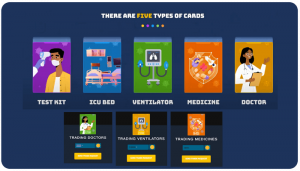
“The idea behind the game was to mirror reality where there is uncertainty in virus caseload and to see not only how children make decisions but also whether they understand the concept of working together as global citizens,” says Kavita. She goes on to add that while the countries are make-believe, the data is all real. “I used WHO data of resources of real countries,” she says. Kavita, who works on serious games at the Cognitive Science research centre, designs games with subtly concealed learning objectives through a fun facade. She is involved in various gaming projects from neuro-rehabilitation, to those meant for training the army in warfare, to urban planning. For someone whose long-term research focus has been empathy, it’s not surprising to find an underlying theme of financial empathy in this game too.
Game As Part Of A Course
The trade game itself was was one of two games that marked the culmination of a 15-module multi-disciplinary online course on Covid-19 conceptualised and curated by Agastya Foundation, a non-profit organization whose mission is to develop scientific temper and ignite curiosity in young minds. The premise of the course has its genesis in the Pradhan Mantri Innovative Learning Programme, named Dhruv Tara (after the pole star), that seeks to identify and encourage exceptionally talented children to reach their full potential under the mentorship of renowned experts. When the pandemic broke out in 2020 derailing the programme’s momentum, Agastya Foundation decided to continue their efforts albeit in the virtual mode. With sponsorship from the Pravaha and Mytrah Foundations, they developed the course and since then have been delivering it to children of high abilities. “There are many other organisations such as Raising A Mathematician (RAM) Foundation, the Indian Institute of Science Education and Research (IISER), Tirupati, the Jnana Prabodhini Prashala, the National Institute of Advanced Studies, Bengaluru, Genwise and others who are working in their own way to identify exceptional talent among children. Thanks to our association with them, we found such students for our own programme broadly from 9th to 11th grade drawn from a mix of urban and rural schools,” says M.G. Subramanian, Senior Education Consultant and Advisor to Agastya. Besides modules on logical reasoning and critical thinking, the course includes a hands-on component where children are introduced to a design problem through simple software. Students are exposed to the Biology of the virus – from the basics of evolution to the basics of evolution of viruses. And then they are taught the Mathematics behind the virus – pandemic modelling to determine how the virus spreads, and to estimate mortality rates and so on.
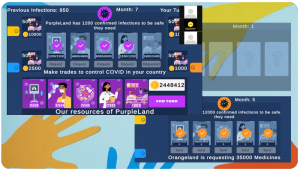
Design & Development
“Agastya wanted to convey the complexities in real life to children via this game. When they shared the specs with me, I got thinking about the design. I wanted children to understand the nuances and play intuitively without making it too complex to play,” says Kavita. While the initial implementation of the game began in-house with the help of two IIITH BTech project students Devansh and Anshul Gupta, the final and refined version of the game was done by GoLive Gaming Solutions. Founded by IIITH alumni, this CIE-incubated gaming development startup counts its games tailored for Indian audiences as its single-biggest USP. “We have games built around Indian mythology, and cricket, to name a few. In the trade game, we were more of a technical enabler and were involved quite heavily on the design and UI side as well as the actual development and testing,” says Ravi Kiran, Co-founder of GoLive. A team of 3 was actively involved in building the game on the Unity engine and GameSparks from Amazon Web Services.

Work And Play
As a self-confessed “long-term industry person” who has played quality games at the executive level, Subramanian has conviction in the power of games to teach and learn from. “At Agastya, we have quite a few physical games, for instance, there’s a game on evolution on our campus. We knew of Kavita’s work in the gaming area and approached her. I was looking for elements of cooperation as well as competition in the game,” he says. According to him, for any learning to take place, the right environment ought to be set up. In this case, it was over a Zoom call that children who had never met in person came together to spontaneously collaborate. “The point is that the experience of playing a particular game did not simply teach how to control the pandemic, it taught a lot of other things, and most importantly it set them thinking,” he says.
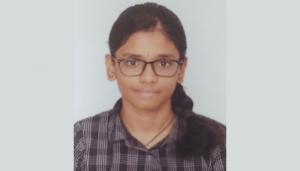
Going by the childrens’ testimonials, the game seems to have hit the nail on its head. For R. Hiranmayi a 15-year-old Chennai resident, the game served as an eye-opener. “It was after playing the game that I realised how complicated the situation actually is. Because we don’t know much about the virus, we have to work with what we have. There are multiple stages of Covid-19. To determine who to prioritise in this kind of a situation is a very difficult process especially for a country like India with a population of 1.3 bn,” she says sagely. Such wisdom beyond their years is not uncommon among these students. In fact Kavita says, “The preliminary analysis of the game as played by these children showed a certain sense of maturity that could help the older policy makers of the countries!”. In Bangalore-based Atharva Kaushik’s case, the unique combination of facts alongside fun made the entire experience enjoyable. ”I personally walked away with a lot of knowledge about the virus, stuff that you don’t generally learn in school (10th grade)”, he says. Omkaar Nerurkar, an 8th grader who was probably one of the youngest to play this game has a suggestion for educationists framing school curriculum. ”When there’s a lecture, it’s a bit boring; you’re just sitting there and doing nothing. When there’s a game though, you are a part of it. Maybe in schools, they could include one or two sessions a week where there are games,” he says.
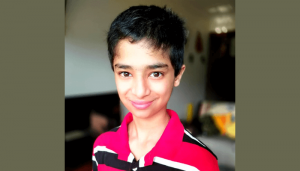

Sarita Chebbi is a compulsive early riser. Devourer of all news. Kettlebell enthusiast. Nit-picker of the written word especially when it’s not her own.

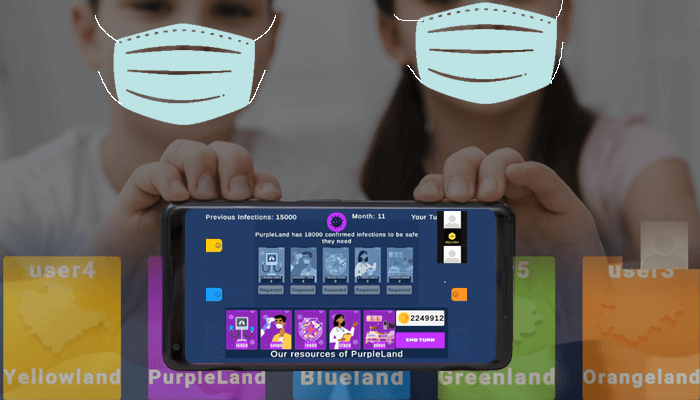
Next post